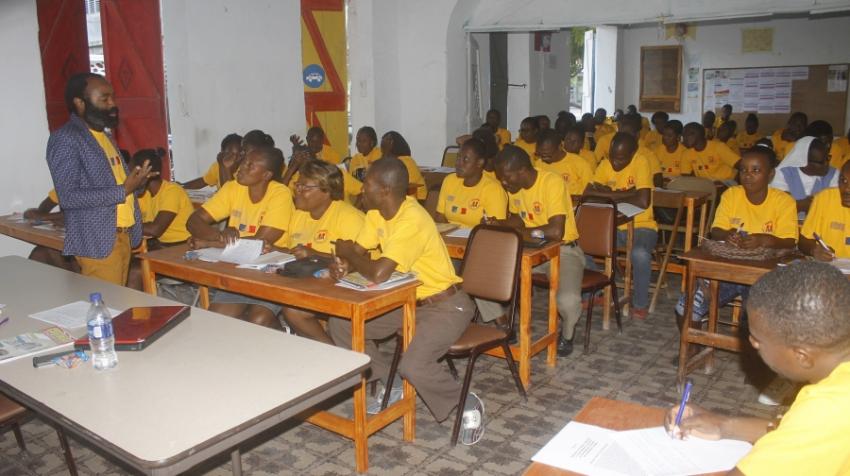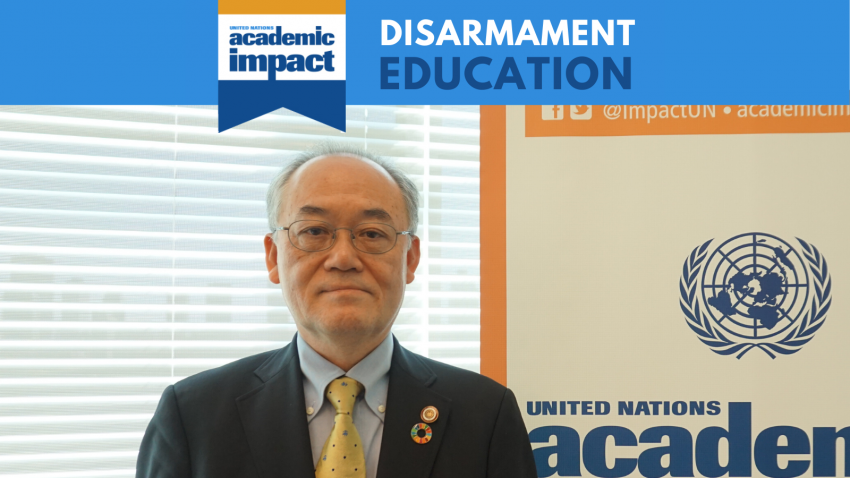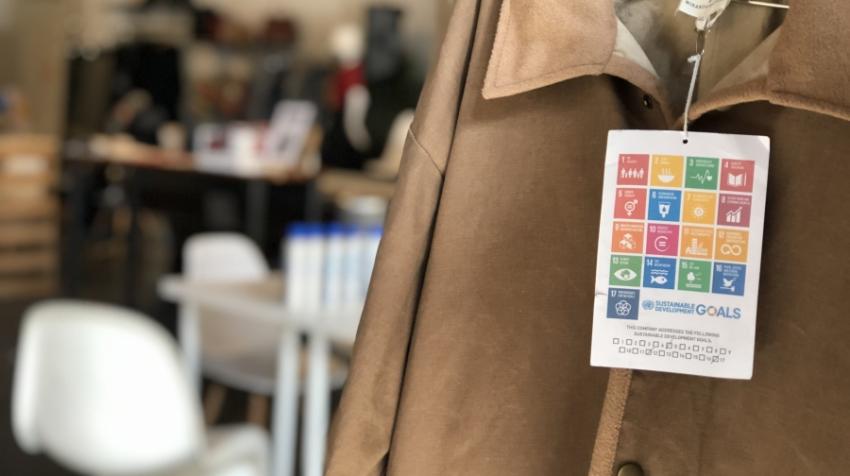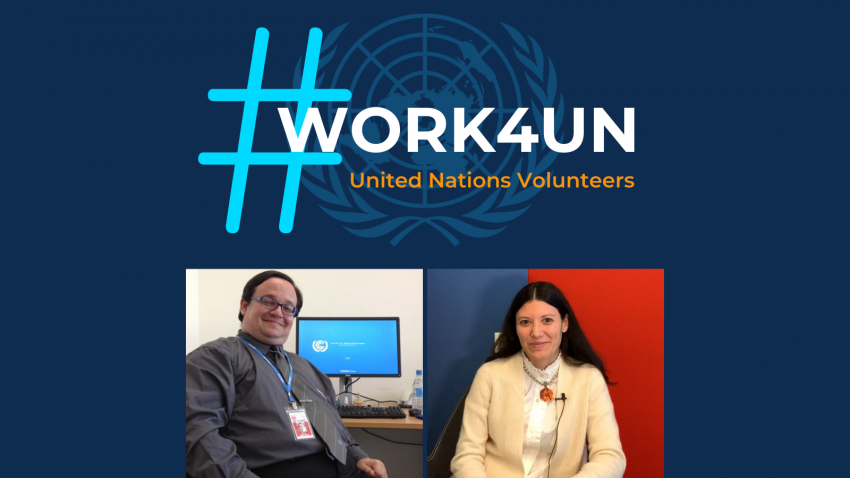
Ending Poverty Critical for Ensuring Social Justice
UN Secretary-General Antonio Guterres has said, “Ending poverty is not a matter of charity, but a question of justice.” In observance of the World Day of Social Justice Kristu Jayanti College, a UNAI member institution in India serving as the UNAI SDG Hub for Goal 1 – No Poverty, through its Department of Social Work and in association with civil society partners like World Vision India, organized a national colloquium on Ending Poverty: A Pathway to Social Justice.

Millennium Fellow Agaba Francis Dunok: Kidsaid Uganda
United Nations Academic Impact and the Millennium Campus Network (MCN) are proud to partner on the Millennium Fellowship, a semester-long leadership development program that helps students design and implement community-level initiatives to promote sustainability and help others in need.
Over 7,000 young leaders on 1,209 campuses across 135 nations applied to join the Millennium Fellowship Class of 2019; 69 campuses worldwide were selected to host the 1,092 Millennium Fellows. The Class of 2019 is bold, innovative, and inclusive. Their work is projected to positively impact the lives of nearly 1 million people worldwide this year.

Millennium Fellow Wanjiku Cynthia Mwangi: Transform a Girl’s Life Initiative
United Nations Academic Impact and the Millennium Campus Network (MCN) are proud to partner on the Millennium Fellowship, a semester-long leadership development program that helps students design and implement community-level initiatives to promote sustainability and help others in need.
Over 7,000 young leaders on 1,209 campuses across 135 nations applied to join the Millennium Fellowship Class of 2019; 69 campuses worldwide were selected to host the 1,092 Millennium Fellows. The Class of 2019 is bold, innovative, and inclusive. Their work is projected to positively impact the lives of nearly 1 million people worldwide this year.

Creating a New Society through Environmental Education
In 1977 the Tbilisi Declaration on environmental education was adopted to “create new patterns of behavior of individuals, groups, and society as a whole towards the environment.” In the spirit of the nearly 45 year old declaration, the Franco-Haitian University of Cap-Haitian, a UNAI member institution in Haiti, has developed a project on environmental education as part of its community outreach and extension initiatives that is supported by the Association for the Development of the Northeast and the French Embassy in Port-au-Prince.

Engaging Students in the 2030 Agenda Through Civic Action
Each year freshmen at Lynn University, a UNAI member institution in the United States, participate in the Citizenship Project as part of a three-week semester called January Term (J-Term), which is intended to serve as an immersive program that explores innovative ideas and topics. In particular, the Citizenship Project aims to foster design thinking in students in order to identify a civic or social issue, create a plan of action to tackle it and engage in service work to address it.

Disarmament Education: Peace Education as a New Literacy
Since its founding, the United Nations has given the highest priority to reducing and eventually eliminating weapons of mass destruction, including nuclear, biological and chemical weapons, as well as controlling small arms and light weapons. With the rapid development of information and communications technology, the emergence of new concepts of security and threat, and the largest generation of young people in history, the need for education in disarmament and non-proliferation has never been greater.

Disarmament Education Series: Educating Youth through Art, Technology and Dialogue
Since its founding, the United Nations has given the highest priority to reducing and eventually eliminating weapons of mass destruction, including nuclear, biological and chemical weapons, as well as controlling small arms and light weapons. With the rapid development of information and communications technology, the emergence of new concepts of security and threat, and the largest generation of young people in history, the need for education in disarmament and non-proliferation has never been greater.

Disarmament Education: Youth at the Forefront of Disarmament Dialogue
Since its founding, the United Nations has given the highest priority to reducing and eventually eliminating weapons of mass destruction, including nuclear, biological and chemical weapons, as well as controlling small arms and light weapons. With the rapid development of information and communications technology, the emergence of new concepts of security and threat, and the largest generation of young people in history, the need for education in disarmament and non-proliferation has never been greater.

Disarmament Education: Building a Safer World for All through Education
Since its founding, the United Nations has given the highest priority to reducing and eventually eliminating weapons of mass destruction, including nuclear, biological and chemical weapons, as well as controlling small arms and light weapons. With the rapid development of information and communications technology, the emergence of new concepts of security and threat, and the largest generation of young people in history, the need for education in disarmament and non-proliferation has never been greater.

Changing Lives by Revitalizing Housing
Fifteen houses, fifteen families and fifteen opportunities to change lives. Living up to the mission of transforming lives through educational excellence, La Salle University (Unilasalle) in Rio de Janeiro, Brazil, has been working since 2019 with the institution’s Office of Architecture and Engineering acting as focal point, in partnership with the Housing Secretariat of the city of Niterói, within the Metropolitan Region of Rio de Janeiro.

ReFashion Week NYC Promotes Sustainability by Celebrating Secondhand and Sustainable Fashion
The fashion industry has been considered the second most polluting industry in the world by the UN Conference on Trade and Development (UNCTAD). Some 93 billion cubic metres of water, enough to meet the needs of five million people, is used by the industry annually, and the amount of microfibre equivalent of 3 million barrels of oil is being dumped into the ocean every year. The fashion industry is also responsible for emitting more carbon than all international flights and maritime shipping combined.

#Work4UN: UN Interns
UNAI designed the #Work4UN series to help you understand the UN, its structure, and some of the most common avenues available to join the organization. The article in the series introduces the UN internship programme.

#Work4UN: Language Professionals
The United Nations, with offices in 193 countries and 37,000 employees, is the world’s largest universal multilateral international organization. It inspires people from around the world to join its mission of maintaining peace, advancing human rights and promoting justice, equality and development.
Securing employment with the Organization can seem like a daunting task, but as the scope of its work is global and multidimensional, there are many different entry points for candidates of varied educational backgrounds and diverse professional experience. UNAI designed the #Work4UN series to help you understand the UN, its structure, and some of the most common avenues available to join the organization. Today’s article is the fourth in the series and focuses on working for the UN as a language professional.
Language Careers at the UN

#Work4UN: UN Volunteers
?The United Nations Volunteer (UNV) programme contributes to peace and development through volunteerism worldwide. The programme integrates qualified, highly motivated and well supported professionals into the work of different UN offices and promotes the value and global recognition of volunteerism.
The United Nations, with offices in 193 countries and 37,000 employees, is the world’s largest universal multilateral international organization. It inspires people from around the world to join its mission of maintaining peace, advancing human rights and promoting justice, equality and development.

#Work4UN: The Junior Professional Officer Programme
The United Nations, with offices in 193 countries and 37,000 employees, is the world’s largest universal multilateral international organization. It inspires people from around the world to join its mission of maintaining peace, advancing human rights and promoting justice, equality and development.
Securing employment with the Organization can seem like a daunting task, but as the scope of its work is global and multidimensional, there are many different entry points for candidates of varied educational backgrounds and diverse professional experience. UNAI designed the #Work4UN series to help you understand the UN, its structure, and some of the most common avenues available to join the organization. Today’s article is the third in the series and focuses on the Junior Professional Officers (JPO) Programme.
Junior Professional Officers (JPO) Programme
